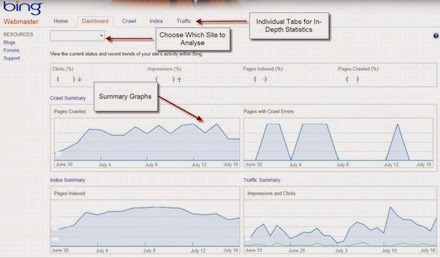It is with great pleasure I’d like to share that Yahoo! has completed the algorithmic transition to Bing in all global markets (except Korea), across desktop and mobile, for all Yahoo! and syndication traffic. This has been a huge effort spanning 20-plus months involving many people across Yahoo! and Microsoft. Only Korea, which involves a three-way integration between Yahoo, Microsoft and Daum, remains, and is expected to complete by the end of the year.
I often get asked what makes the algo transition effort so complex. Here are some of the interesting challenges we’ve had to deal with to provide some color to the effort:
We had to cutover web, image and video search experiences from Yahoo!’s search technology backend to Bing’s algorithmic backend for 40-plus markets, across desktop and mobile devices.
In addition to Yahoo’s owned and operated search experiences, we also had to cut over hundreds of our syndication partners in more than 50 markets, while ensuring a smooth transition for users of our wildly popular Yahoo! Search BOSS service.
Cutting over to the Bing backend was not simply a matter of technical integration through the Bing API. We worked with Microsoft to ensure that Bing’s algorithmic quality in each of these markets was on par or better than Yahoo!’s quality. Wherever we found quality gaps, we worked collaboratively with our counterparts at Bing to provide data driven assessments of quality gaps to help us close the gaps quickly. Only when both teams had established that the quality bar in a market was met, did we green light the cutover.
A very important design principle was to ensure availability of all key user experience elements of the Yahoo! search experience post-cutover. This meant that we had to perform a comprehensive analysis of product features per market, assess which of those would require support from the Bing platform, and which features Yahoo! would have to continue to develop and invest in.
Creating a migration path to Bing Webmaster tools for users of Yahoo! Site Explorer, while continuing to support Site Explorer for international users during the transition period proved challenging.
We had to confirm Bing could handle Yahoo’s capacity across multiple global datacenters, including new ones that were brought online to serve the needs of the Search Alliance. The fact that all the cutovers went remarkably smoothly and were essentially non-events from an operational perspective is a testament to the thorough job both teams did.
For all our major markets, we ran comprehensive bucket tests to compare the Yahoo! search experience going against the Yahoo! and Bing backends. We monitored key user experience metrics to ensure that the product experience post cutover would be on par or better for our customers.
We had to put in place support and customer care processes that ensured user concerns and content issues were handled appropriately between our companies, working through policy differences to ensure the right outcome for all stakeholders.
For those of us who have been deeply involved in the algo transition, this has easily been one of the best learning experiences of our professional lives. All the late nights, war room huddles, SeaTac trips and time away from families, all of the technical deep dives, business negotiations, ‘pausing & unpausing’ ;-), have all been worth it. I am extraordinarily privileged to have worked with an exceptional group of people, both within Yahoo! and Microsoft — you all know who you are. Thank you so much for your dedication and commitment to delivering the best possible search experience for our users.
– Kartik Ramakrishnan, VP of Search Engineering, Yahoo!
http://www.ysearchblog.com/2011/10/18/search-alliance-global-algo-transition-update/
















